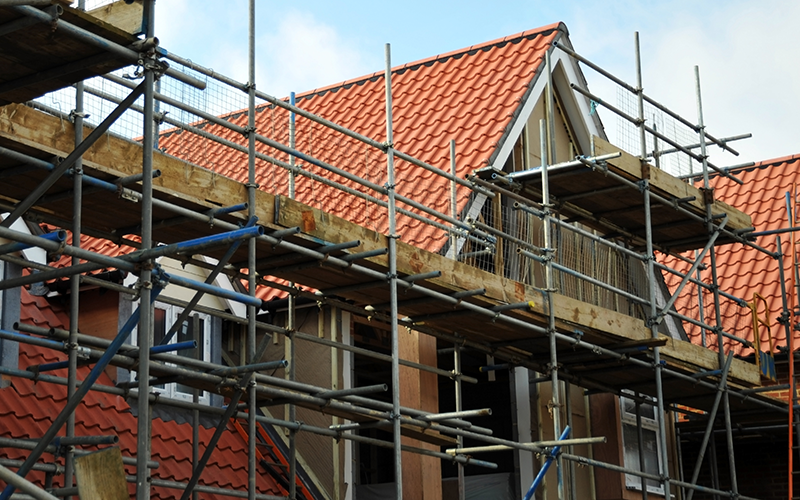By Richard Johnstone | 28 December 2011
The UK faces a ‘lost decade’ of house building unless the government demands more from developers, a think-tank has said. This should include greater conditions on the use of any public land released for building.
 A
report published today by the Institute for Public Policy Research warns that
the Department for Communities and Local Government’s housing strategy risks
‘subsidising stagnation’.
A
report published today by the Institute for Public Policy Research warns that
the Department for Communities and Local Government’s housing strategy risks
‘subsidising stagnation’.The strategy, published last month, offers to release public land to developers, and potential mortgage guarantees, without a ‘quid pro quo’, IPPR director Nick Pearce has said.
The think-tank’s report, We must fix it: delivering reform of the building sector to meet the UK’s housing and economic challenges, argues that the construction industry ‘for too long prioritised trading land over building homes’.
It calls for reforms to address this, including splitting the development process in two by separating the purchase of land and the building of houses. And all land ownership and sales should be filed with the Land Registry as part of a firewall between the two elements.
These reforms are necessary to build the number of homes the country needs. The IPPR estimates that England faces a shortfall of around 750,000 homes by 2025 to accommodate the growing number of households.
Among the conditions that should be placed on the use of public land is a promise that new homes are built quickly and a commitment to lower profit margins.
Pearce said: ‘Our construction industry has for too long prioritised trading land over building homes. This has to change. The government’s new housing strategy does not make sufficient demands of the house builders. Instead, it offers them public land, money and guarantees without a serious quid pro quo.
‘The government must demand more bang for the taxpayer’s buck – if it doesn’t, the result will be subsidised stagnation and another lost decade of house building. It is now time for development industry reform to become an integral part of housing policy.’
The report found that Britain’s big builders are still reeling from the credit crunch, which led to a fall in UK private housing market completions since 2007 that has been among the steepest in the developed world.
However, government intervention in the same period has been ‘poorly conceived, captured disproportionately by the major house builders and focused on short-term concerns’.
Large firms become ‘too big to fail’, but smaller firms and possible new market entrants have become increasingly frozen out of access to credit and government support packages.
The IPPR found, for example, that of the £213m spent on HomeBuy Direct support scheme between 2008 and 2011, 64% went to the four largest builders.
Housing minister Grant Shapps said that the report had ‘missed the fundamental point’ of the government’s strategy. He said the government would push developers and builders ‘harder than ever before’ to deliver new homes.
‘For example, our new affordable housing programme will cost the taxpayer far less per home by stretching builders and housing associations to contribute on average 25% more towards the costs,’ he said. ‘And we are also getting far better value for money through the Get Britain Building fund than under previous government's Kickstart programme.
‘Taken together these new measures will support and help smaller builders to expand, create thousands of new jobs and reinvigorate the housing market.’





















